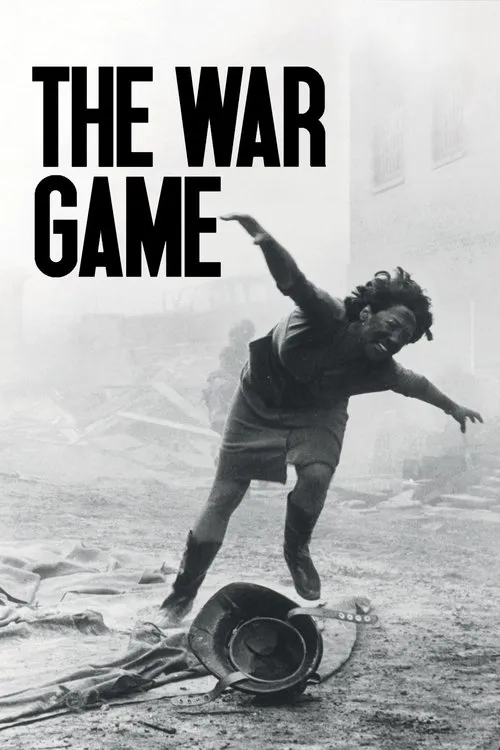The War Game

Plot
The War Game is a 1966 British docudrama directed by Peter Watkins that serves as a powerful warning about the devastating consequences of a nuclear attack on Britain. The film is set in a fictional Britain in 1964, but it is loosely based on real events, and its narrative is driven by a series of hypothetical scenarios that unfold in the aftermath of a nuclear attack on the United Kingdom. The film opens with an introductory sequence, in which a news announcer reports on the possibility of a nuclear war with the Soviet Union. However, this initial report is quickly overtaken by events, and the narrative shifts to a dramatic and apocalyptic portrayal of a nuclear attack on a major British city. The film's first scene depicts a typical day in the life of a woman named Mrs. Pilkington, a mother of two young children living in a small village in England. The scene is filmed in a documentary style, using a handheld camera and a naturalistic approach to dialogue. This style creates a sense of immediacy and authenticity, drawing the viewer into the protagonist's world and making the ensuing events all the more shocking and unsettling. As the scene progresses, the sound of sirens is heard in the distance, and the news is announced that a nuclear bomb has been detonated over a major British city, possibly Liverpool. The initial reports are sparse and unclear, but it soon becomes apparent that the attack is widespread and catastrophic. The narrative then cuts to a series of vignettes, each depicting a different aspect of the disaster. These scenes are often brutal and disturbing, depicting the immediate effects of the blast, including the widespread destruction of buildings and infrastructure, as well as the brutal and devastating effects on the human body. The scenes are interspersed with news bulletins and public announcements, which provide context and information about the unfolding disaster. As the narrative progresses, the scope of the disaster becomes clear, and the full scale of the destruction is revealed. The film depicts scenes of extreme violence and suffering, including reports of widespread looting, civil unrest, and even cannibalism. The scenes are often shot in a stark and unflinching manner, using handheld cameras and extreme close-ups to create a sense of intensity and immediacy. Throughout the film, Watkins uses a range of techniques to convey the sense of chaos and disorder that pervades the disaster. These include rapid cuts, jarring music, and a relentless pace that creates a sense of tension and unease. The film's use of sound is particularly noteworthy, with a range of sounds, including sirens, gunfire, and screams, adding to the overall sense of chaos and disorder. As the narrative reaches its climax, the full effects of the disaster become apparent. The film depicts scenes of widespread devastation, including the destruction of entire cities and the loss of millions of lives. The scenes are often graphic and disturbing, but they serve to drive home the full scale of the disaster and the devastating consequences of nuclear war. The War Game ends with a haunting and thought-provoking sequence, in which a group of survivors is shown walking through a devastated landscape, picking their way through the rubble and ash. The sequence is often seen as a metaphor for the long-term effects of nuclear war, including the trauma and displacement that can result from such an event. Throughout the film, Watkins' intentions are made clear. He is using the film as a warning about the devastating consequences of nuclear war, and as a critique of the nuclear arms race that was a major issue in the 1960s. While the film is often seen as a horror film, it is also a powerful commentary on the dangers of nuclear war and the need for disarmament and diplomacy. The War Game was a major departure from the normative style of British film and television at the time, and its content was deemed too disturbing for television broadcast. However, in recent years, the film has come to be seen as a classic of British cinema, and a powerful warning about the dangers of nuclear war.
Reviews
Recommendations




